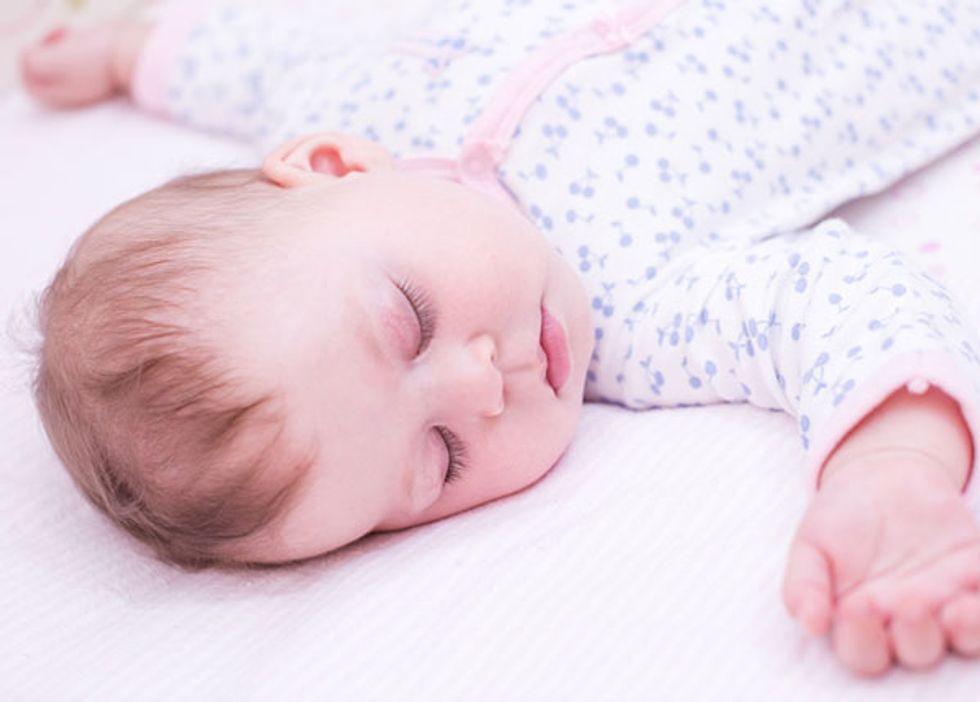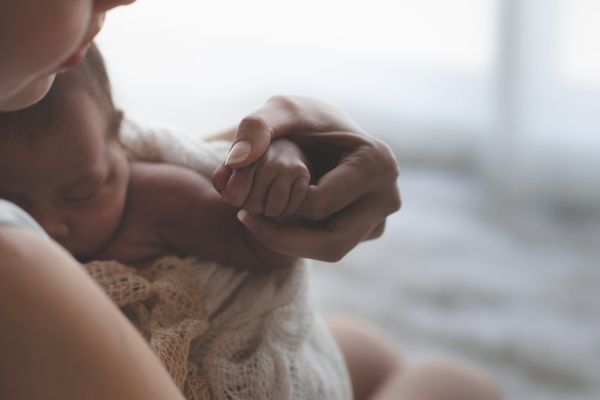My local newspaper recently published a heartbreaking headline: "Unsafe sleep practices cited in 21 child deaths." What could be worse than putting your healthy baby to sleep and then, a few hours later, finding your child dead?
Yet, it happens. Apparently, in my area it happens more often than death from child abuse or neglect. The eastern district of Virginia reported 21 deaths from unsafe sleep situations in 2015 and 13 deaths from child abuse or neglect.
April is Child Abuse Awareness Month and a good time to focus on keeping our children safe.
Nationally, an estimated 1,520 children died from abuse and neglect in 2013, according to the Child Welfare Information Gateway, part of the Children's Bureau of the U.S. Department of Health & Human Services. This means about 2 in 100,000 children died from abuse or neglect.
Still, abuse doesn't even crack the top 10 causes of infant death. In 2013, a total of 23,440 deaths occurred in the United States in children under age 1 year, and sudden infant death syndrome (SIDS) was the fourth-leading cause of infant death. It caused nearly 40 deaths per 100,000 children in 2013. (The top three causes are related to birth disorders or pregnancy complications.)
Very young children are most vulnerable because they are dependent, small and unable to defend themselves. Research shows that children age 4 and younger are most likely to die from child abuse or neglect, and children younger than 1 year account for nearly half of these fatalities.
Any death of a child is horrific, and we—as parents and as a society—should do everything we can to protect our children. The awareness of keeping our children safe must start at home. While many cases of SIDS may not be preventable, there are things you can do to ensure your child has safe sleep.
According to the report in The Virginian-Pilot newspaper, the unsafe sleeping practices that cause infant deaths include:
- Infants sleeping with an adult
- Babies put to sleep on their stomachs or in bedding that was too soft
- Babies sleeping somewhere other than a crib, such as a couch, child seat or adult bed
In Virginia, more than half of the infants who died in unsafe sleep situations were sleeping with at least one other person. Of those, almost one-fourth of the infants were in a bed with someone who had used alcohol or drugs.
Although it's been more than two decades since I had an infant, I clearly remember that tired-to-the-bone feeling that comes with caring for infants. I remember how tempted I was some nights to nurse my baby in bed and then fall asleep without carrying her back to her crib. Or how I wanted to lie down beside her at naptime and pat her till she fell asleep—and then nap alongside her because I was too tired to get up.
I may have done that on occasion—and been extremely lucky. But most nights I nursed in a rocker and then put my babies safely back to sleep in their crib. And, as tempting as it was to put cute little stuffed animals, soft blankets and satiny pillows in the crib with them, I resisted the urge until my children were older and safely able to support themselves and avoid accidental suffocation.
It's hard being a parent. No one can adequately prepare you for all the challenges you and your newborn will face.
But there are some things you can do. When putting your baby to sleep, remember the "ABC" mantra: Alone, on their Backs, in Cribs. And monitor your child's sleep and check on her frequently.
Being a parent means being responsible—not only for yourself but for your children. The stress of being a new parent can be overwhelming. Sometimes parents deal with stress by abusing alcohol or drugs or lashing out at their child in anger or frustration.
If you feel things spinning out of control—or just slipping to the point where you're so tired you can't even put your baby to sleep safely— talk to your health care provider or call the Childhelp National Child Abuse Hotline at 800-4-A-CHILD (800-422-4453).







